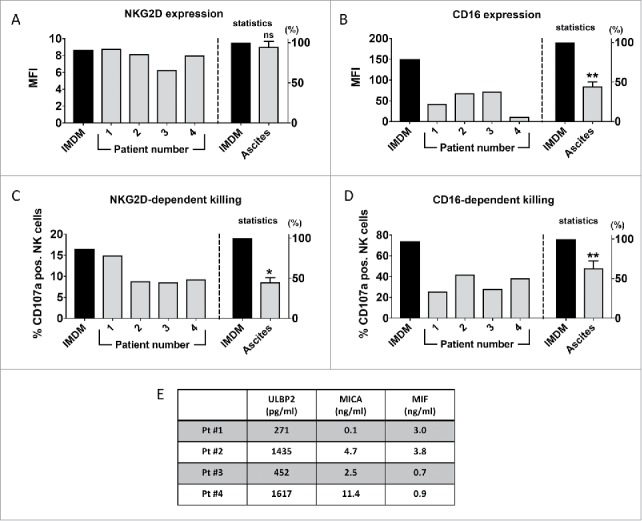Figure 2.

Ovarian cancer ascites diminishes CD16-surface expression and inhibits NKG2D- and CD16-dependent target cell killing. IL2 and IL15 primed NK cells from healthy donors were incubated with ovarian cancer ascites (4 different patients) diluted 1:4 in IMDM medium or with pure IMDM medium (control) for 18 hours. The surface expression of NKG2D (A) and CD16 (B) receptors were analyzed by flow cytometry. In both cases, receptor expression was normalized to the control (IMDM) group and the normalized values from all 4 patients were combined for the statistics. Following an 18-hour incubation with ovarian ascites or IMDM, NK cells were co-cultured with Drosophila Schneider-2 (S2) cells stably expressing ULBP1 (S2-ULBP1 (C)) or coated with IgG (S2-Fc (D)) to assess NK cell degranulation in response to NKG2D or CD16 stimulus, respectively. Degranulation was detected by flow cytometric analysis of CD107a. In both cases, CD107a positive NK cells were normalized to the control (IMDM) group and the normalized values from all 4 patients were combined for the statistics. Error bars indicate standard error of the mean (SEM) and statistical analysis by paired t-test. Statistical significance is indicated by asterisks if p < 0.05). Gating strategy see Fig. S6. (E) Amount of soluble NKG2D ligands and MIF in ovarian ascites samples used in A-D as measured by ELISA.
